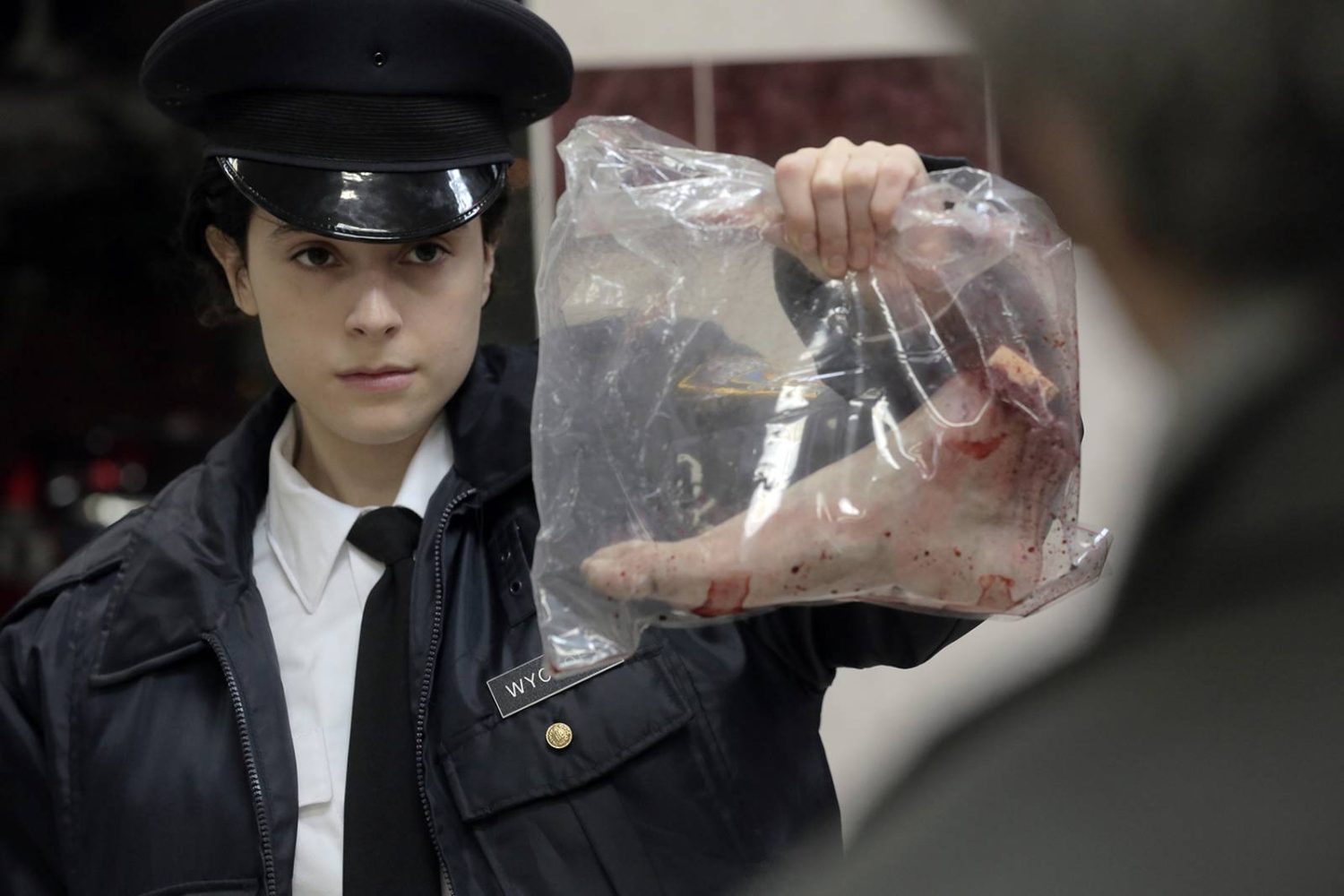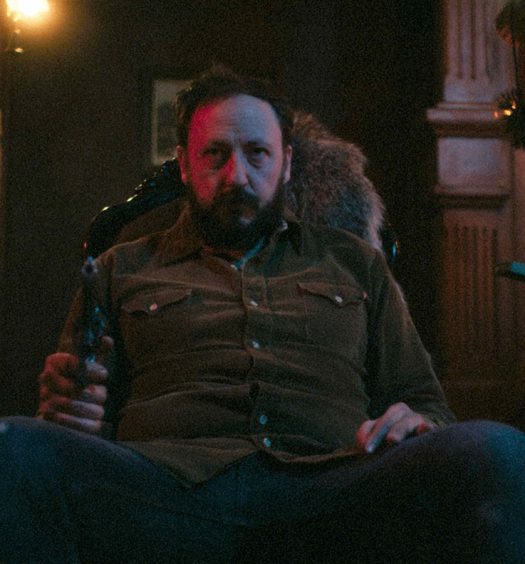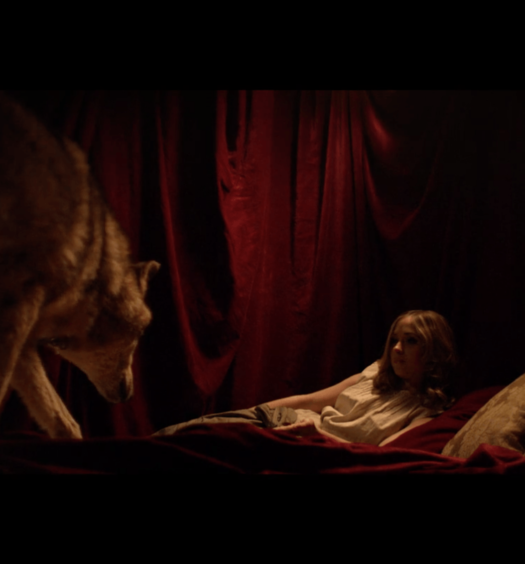Onur Tukel’s follow-up to 2014’s Summer of Blood releases later today, and after a positive review from Modern Horrors’ own Casey Bowman, we thought it’d be fun to get with the man behind the camera to discuss his most recent film and the various tales/inspirations behind it – APPLESAUCE.
First off, I’d like to talk about the title of the film – “Applesauce”. How did the name come about and what’s the significance behind it?
It was originally very simple. The “apple” in Applesauce stood for New York, the Big Apple. The “sauce” represented the mix of genres that the film encompasses – comedy, horror, drama, noir, mystery. It’s a sauce with many flavors. As we played festivals and I conducted Q&As, a lot of people asked that question. I started asking the audience what they thought the title meant. A very clever person thought it had biblical significance. Adam and Eve live in paradise until they bite into the apple and gain knowledge, throwing everything out of whack. In Applesauce, the four characters are quite happy in their marriages. It’s a paradise of sorts. When they gain the knowledge – finding out the answer to, “What’s the worst thing you’ve ever done?” – it destroys their paradise. I loved that answer. By the end of our festival run, I was using it as my own.
One of the things that struck me about this film was the music. There’s a real “Hitchcock” vibe with the shrieking horns and the overall timing of them. Was this your way of paying homage to the classics, or did it just fit in with sentiment of the film?
When the composer Michael Montes and I discussed the score, we listened to Bernard Herrmann’s soundtrack for Psycho. We both felt that there was something there that might work for Applesauce. We wanted to give the movie the illusion of suspense. Something is going to go wrong with these characters, so the music needed to have portent. The strings really capture the dread of the movie. They create a feeling of something weighing down on the main characters; a feeling that the world is doomed. And, who isn’t feeling that these days? We were rushing to get the movie ready for the Tribeca Film Festival and I think Montes had about three weeks to score the movie. When he played his initial tracks for me, my jaw dropped. It’s still on the floor. I love his score.
You were able to assemble a very solid cast for this film with various accomplishments in their respective backgrounds – how easy was it working with this group? Do you feel it helps having a smaller number of actors when it comes to accomplishing your vision of the project?
It’s always easier working with less people. That’s just the math. There’s less to focus on. But when you’re working with extremely talented actors, it makes things easy for a director. If something is a bit off, you just need to tweak a little bit and a great actor can adjust accordingly. That’s what I’m always hoping for – to not really have to direct. Max Casella, Trieste Kelly Dunn, and Jennifer Prediger? They were always on their game. But when something did seem amiss with the acting, it was usually just the writing that needed editing. We would cut or change dialogue and that would usually remedy whatever problem I had with a scene. They directed me as much as I directed them. My movies are kind of a free for all. I don’t have much of a vision at the beginning. I trust the crew members to make it work aesthetically. They’re the skin. The script is the brain. The actors are the heart of the movie. Without the heart, the movie is dead. Well, without the brain and skin, you’re pretty fucked, too. Why am I using this analogy? Filmmaking isn’t exactly gross anatomy, now is it? But Applesauce does have a lot of gross anatomy.
What is it about New York that ties the city in so well with this film?
Applesauce is about paranoia, suspecting innocent people of doing horrible things, and losing your mind due to fear and intimidation. We’re all jammed into this city like sardines. When terrorism happens in other cities (Boston, Paris), it’s easy to get nervous that New York is next on the list. If you don’t put that fear in check, the Arab-looking guy wearing the backpack on the subway becomes very scary. I profile the hell out of people and I’m Turkish. Then I get nervous because I think people are profiling me. It’s all in my imagination, I’m sure, but fear castrates common sense. Of course, the government is reactionary. The media is merciless. You pour fear onto fear onto fear and every Arab in the world becomes an enemy. A friend in New York told me that after the recent Paris massacre, she took a cab ride and the Arab driver was crying because no one would get in his cab. This is what fear does. It causes us to point fingers and label a group of people as the enemy. All these themes are in Applesauce.
This film has many different genre elements going for it. There’s the dark comedy aspect, the horror aspect, and the relationship aspect between the characters. How hard is it to tie all of these elements together without cluttering the plot lines of the story?
I think the hard part is just doing the work – finding the discipline to read and write and think and do something valuable with one’s time. I spent the first 30 years of my life ingesting video and film of all types and genres. Slasher films, sitcoms, Disney movies, action, hospital dramas, existential HBO series, the films of Woody Allen and indie cinema of the 90s. I never got into Westerns. Sci-fi never really did it for me. But from 5 to 35, I found the act of watching cinema a beautiful luxury. It just made me happy. Screenplay pours out of all this extrapolated junk buried in the unconscious. I’m tapping into the harddrive of everything I’ve ever watched. When I write, it comes easy. It spews out like a geyser. The first draft is usually pretty bad. The second draft is better, but still quite bad. The hard part is putting in the hours, making it better, and giving it energy and life. I’m trying to reach a broader audience with my little low-budget movies, which usually means making the scenes shorter and the pace a little faster. None of it is hard if you’ve watched enough movies. And writing a script ain’t poetry, regardless of what some famous directors think. It’s about the fucking work. I’m glad that I still care about it and I feel honored that people like you are asking me questions.
Another element of the film that stuck with me was the relationship (or lack thereof) between Ron and his students. How do you think the average high school teacher will relate to Ron and his struggles in terms of identifying with and reaching the minds of students in today’s society?
I’ve had many teachers come up to me after screenings to tell me how much they appreciated that aspect of the movie. In Applesauce, my character is a teacher and has a problematic student who won’t get off her freaking cell phone. It’s very distracting for him. I imagine that’s a big source of annoyance for teachers. I think one of the reasons I stopped going to the movies is because of fucking cell phones. When I’m watching a movie and I see those little cell phones light up, corrupting the sanctity of the space, it makes me want to scream. And I usually do. I’m very vocal when an asshole turns on his cell in a movie theater. I imagine in a classroom setting, it’s infuriating. I tell you, The Alamo Theater Drafthouse gets it right. At the beginning of their movies, they have a dire warning to the audience set to ominous music. If you turn on your cell phone, you will be asked to leave. It’s very reassuring to see that kind of warning. But the teacher in Applesauce desperately wants his students to feel empathy, which is probably what we need more than anything in this reactionary world of trolling and finger-pointing. Still, it seems to me like millennials are pretty empathetic. They’re insanely creative at least, which I think leads to empathy. They don’t need anyone’s permission to make art. They don’t need a record label. They don’t need a film distributor. They don’t need a publisher. I have to admit, when someone under 25 tells me they like my work, it feels great. It’s nice to be connected to young people. They’ve had to grow up in the wake of 9/11. That’s a heavy burden. I grew up in the carefree Reagan years. The worst thing I remember happening when I was a teenager was the Space Shuttle disaster. That and maybe the band Winger.
You’ve been a busy man here of late. Do you have plans of taking some time after ‘Applesauce‘ releases or are you already on to your next project?
I start shooting a new project in December. When it’s one, if an opportunity opens up, I’m going to take it. I used to paddle upstream. Now I drift downstream. I’m just going to go where the river takes me. We’re all heading for a waterfall anyway.
That’s some deep shit, folks. Thanks to Onur Tukel for taking the time to chat with us – you can check out APPLESAUCE today on the VOD platform of your choice. Not sure if you want to? Check out our review.































